About the Authors

Rahul Jain
Assistant professor
National University of Singapore
rahul[ta]comp[td]nus[td]edu[td]sg
http://comp.nus.edu.sg/~rahul
Assistant professor
National University of Singapore
rahul[ta]comp[td]nus[td]edu[td]sg
http://comp.nus.edu.sg/~rahul
Rahul Jain obtained his Ph.D. in computer science from
the Tata Institute of Fundamental
Research, Mumbai, India in 2003. His Ph.D. advisor
was
Jaikumar Radhakrishnan.
He was a postdoctoral fellow
for two years at the University of
California, Berkeley (2004-2006) and for two years at the
Institute for Quantum Computing
(IQC), University of Waterloo,
Canada (2006-2008). In 2008, he joined
NUS as an Assistant Professor in
the Computer Science Department with a cross appointment with
CQT. His research interests are in the areas of information
theory, quantum computation, cryptography, communication
complexity, and computational complexity theory.
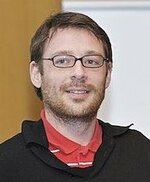
Iordanis Kerenidis
Senior Researcher
Université Paris Diderot 7, Paris, France
jkeren[ta]liafa[td]univ-paris-diderot[td]fr
http://www.liafa.jussieu.fr/~jkeren
Senior Researcher
Université Paris Diderot 7, Paris, France
jkeren[ta]liafa[td]univ-paris-diderot[td]fr
http://www.liafa.jussieu.fr/~jkeren
Iordanis Kerenidis received his Ph.D.
in 2004 from the Computer Science
department at the University of
California, Berkeley. His advisor was
Umesh Vazirani.
After a two-year
postdoctoral position at the Massachusetts Institute of Technology,
he moved to France, where he now holds a Senior Researcher CNRS position,
based at the
Université Paris-Diderot.
Since 2009, he has also been a
long-term visiting scholar at the Centre for Quantum Technologies,
Singapore. His research interests lie in the intersection of quantum
cryptography and complexity theory.
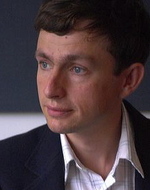
Greg Kuperberg
Professor
UC Davis, Davis, CA
greg[ta]math[td]ucdavis[td]edu
http://www.math.ucdavis.edu/~greg
Professor
UC Davis, Davis, CA
greg[ta]math[td]ucdavis[td]edu
http://www.math.ucdavis.edu/~greg
Greg Kuperberg received a bachelor's degree from
Harvard University (1987)
and a Ph.D. in geometric topology and quantum algebra
from University of
California, Berkeley (1991). His advisor was
Andrew Casson.
Both of his parents are mathematicians, and every subset of the
three have authored at least one paper, including the empty
subset if one allows other coauthors. He has
compiled a computer-assisted survey of complexity classes
called
“Complexity Zoology.”
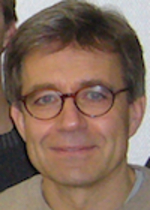
Miklos Santha
Directeur de Recherche
Université Paris Diderot
miklos[td]santha[ta]lri[td]fr
http://www.liafa.univ-paris-diderot.fr/~santha
Directeur de Recherche
Université Paris Diderot
miklos[td]santha[ta]lri[td]fr
http://www.liafa.univ-paris-diderot.fr/~santha
Miklos Santha received his Diploma in mathematics in 1979 from
Eötvös University
in Budapest,
and his Ph.D. in mathematics in 1983 from the
Université Paris 7.
His advisor was Jacques Stern.
Since 1988 he
has been a CNRS researcher, currently at the Université Paris
Diderot,
LIAFA.
He is also a principal investigator at
CQT in Singapore.
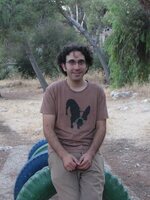
Or Sattath
Ph.D. candidate
The Hebrew University, Jerusalem, Israel
sattath[ta]cs[td]huji[td]ac[td]il
http://www.cs.huji.ac.il/~sattath
Ph.D. candidate
The Hebrew University, Jerusalem, Israel
sattath[ta]cs[td]huji[td]ac[td]il
http://www.cs.huji.ac.il/~sattath
Or Sattath received his B.S. in Physics and Computer Science in 2005, and his
M.S. in Computer Science in 2009, both from the Hebrew University.
His Ph.D. advisors are
Dorit Aharonov
and Julia Kempe.
He is the proud father of Nadav, his newly born son.
His main research interest is quantum complexity theory.
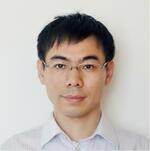
Shengyu Zhang
Assistant professor
The Chinese University of Hong Kong
syzhang[ta]cse[td]cuhk[td]edu[td]hk
http://www.cse.cuhk.edu.hk/~syzhang
Assistant professor
The Chinese University of Hong Kong
syzhang[ta]cse[td]cuhk[td]edu[td]hk
http://www.cse.cuhk.edu.hk/~syzhang
Shengyu Zhang received his B.S. in Mathematics at
Fudan University in 1999, his
M.S. in Computer Science at
Tsinghua University
under the supervision of
Mingsheng Ying
in 2002,
and his Ph.D. in Computer Science at
Princeton University
under the supervision of
Andrew Chi-Chih Yao
in 2006. After working at
NEC Laboratories America for a summer, and
at the
California Institute of Technology
for two years as a postdoctoral researcher, he joined
The Chinese University of Hong Kong
as an assistant professor. His main research interests
are complexity theories in various randomized and quantum models.
